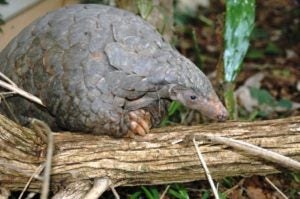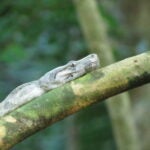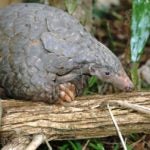
BRUSSELS—At an online event on the revision of the EU Environmental Crime Directive—organised in collaboration with MEPs for Wildlife—Humane Society International/Europe and International Fund for Animal Welfare issued a call for wildlife crime to be recognised as a serious criminal activity.
Dr. Joanna Swabe, senior director of public affairs for HSI/Europe, said:
“Tragically, wildlife trafficking is often seen as a low-risk and highly profitable activity which makes it highly attractive to transnational organised crime networks, especially those with smuggling capabilities. Many law enforcement agencies treat wildlife trafficking and other forms of wildlife crime as a low priority and many EU Member States still only invoke relatively weak penalties. In its EU Biodiversity Strategy, the European Commission committed to reviewing the current Environmental Crime Directive. It is high time that wildlife crime is recognised as a serious criminal activity that should be heavily penalised.”
Eleonora Panella, senior campaigner at IFAW EU, added:
“It is vital that there is far better cooperation between EU Member States when it comes to tackling transnational crimes, particularly when environmental crimes, specifically wildlife trafficking, converge with other forms of organised crime, such as money-laundering, narcotics and terrorism. Wildlife crime is highly damaging to biodiversity and the survival of species, yet criminals regard illegal wildlife trade as being relatively low-risk and high income generating because of the lack of severe penalties and low chances of being apprehended or prosecuted. The European Commission needs to take action to make sure that wildlife crime does not pay.”
The event, which was hosted by Belgian MEP Hilde Vautmans and included high-level speakers, such as Catherine De Bolle, executive director of Europol and Jorge Rios, chief of the United Nation’s Office on Drugs and Crime Global Programme for Combating Wildlife and Forest Crime, considered the issue of whether wildlife crime should be recognised as a serious criminal activity that should be heavily penalised, especially in the context of transnational organised crime.
Other panelists included:
- Wouter van Ballegooij, legal and policy officer on criminal law for the Commission’s Directorate-General for Justice and Consumers
- Francesca Carlsson, legal officer for the European Environmental Bureau
- Daan van Uhm, criminologist for the Willem Pompe Institute for Criminal Law and Criminology, Utrecht University
- Mário Kern and Ondrej Koporec, Department for Detection of Hazardous Substances and Environmental Crime, Criminal Police Bureau, Slovakia
- José Antonio Alfaro Moreno, team leader for the European Serious and Organised Crime Centre, EU Organised Crime Unit, Europol
Watch a recording of the event.
ENDS
Media contact: Wendy Higgins: whiggins@hsi.org



